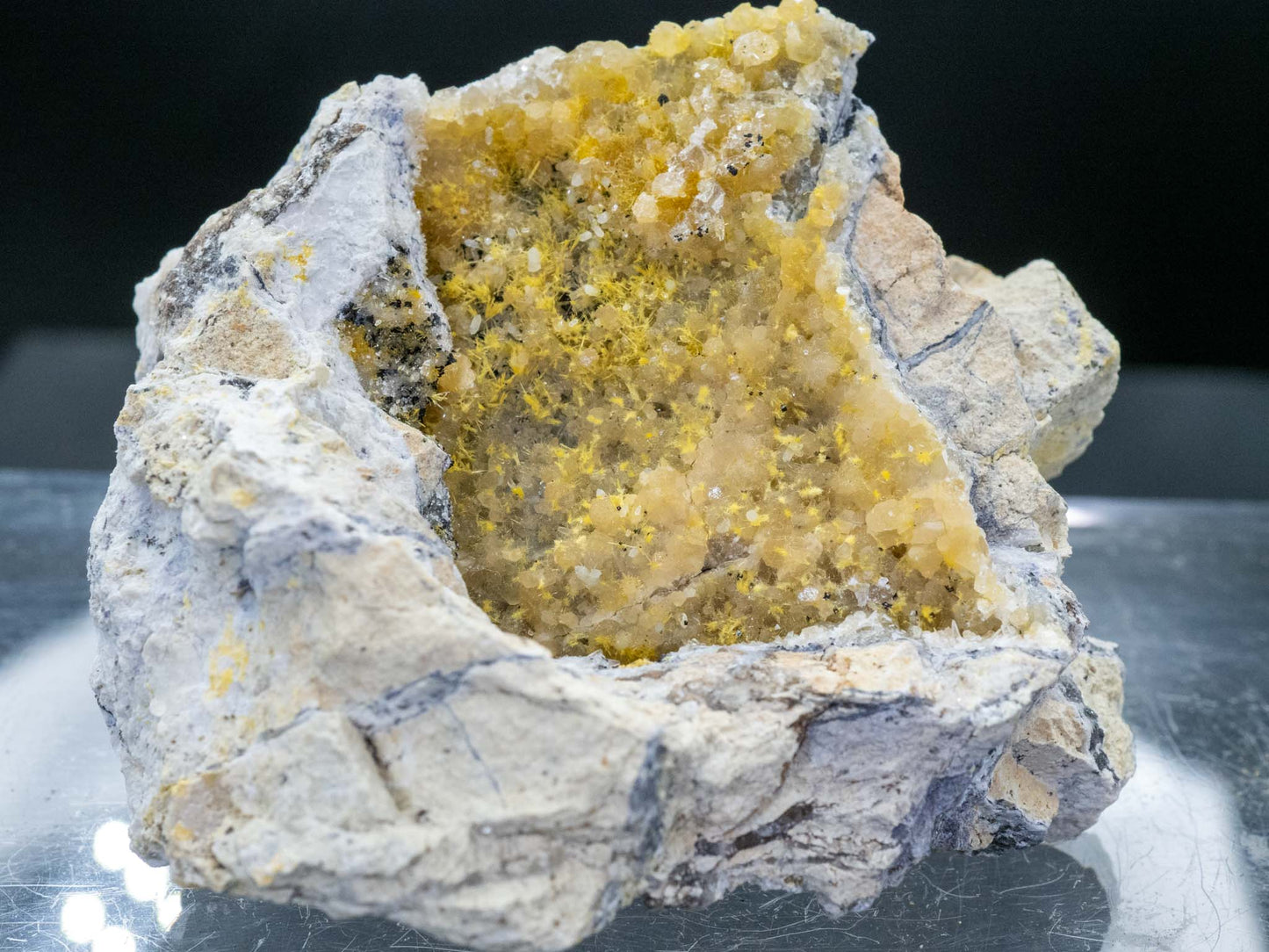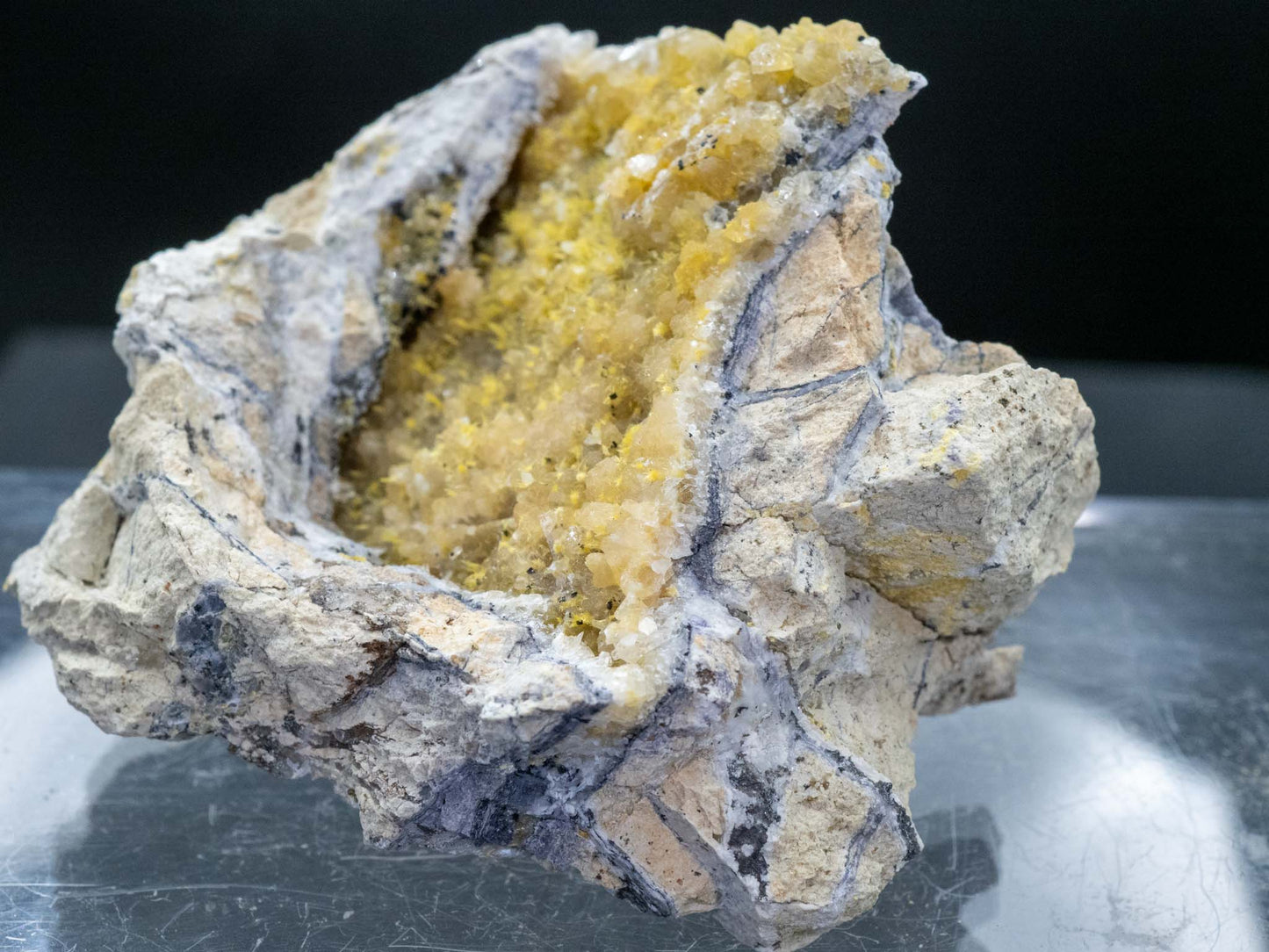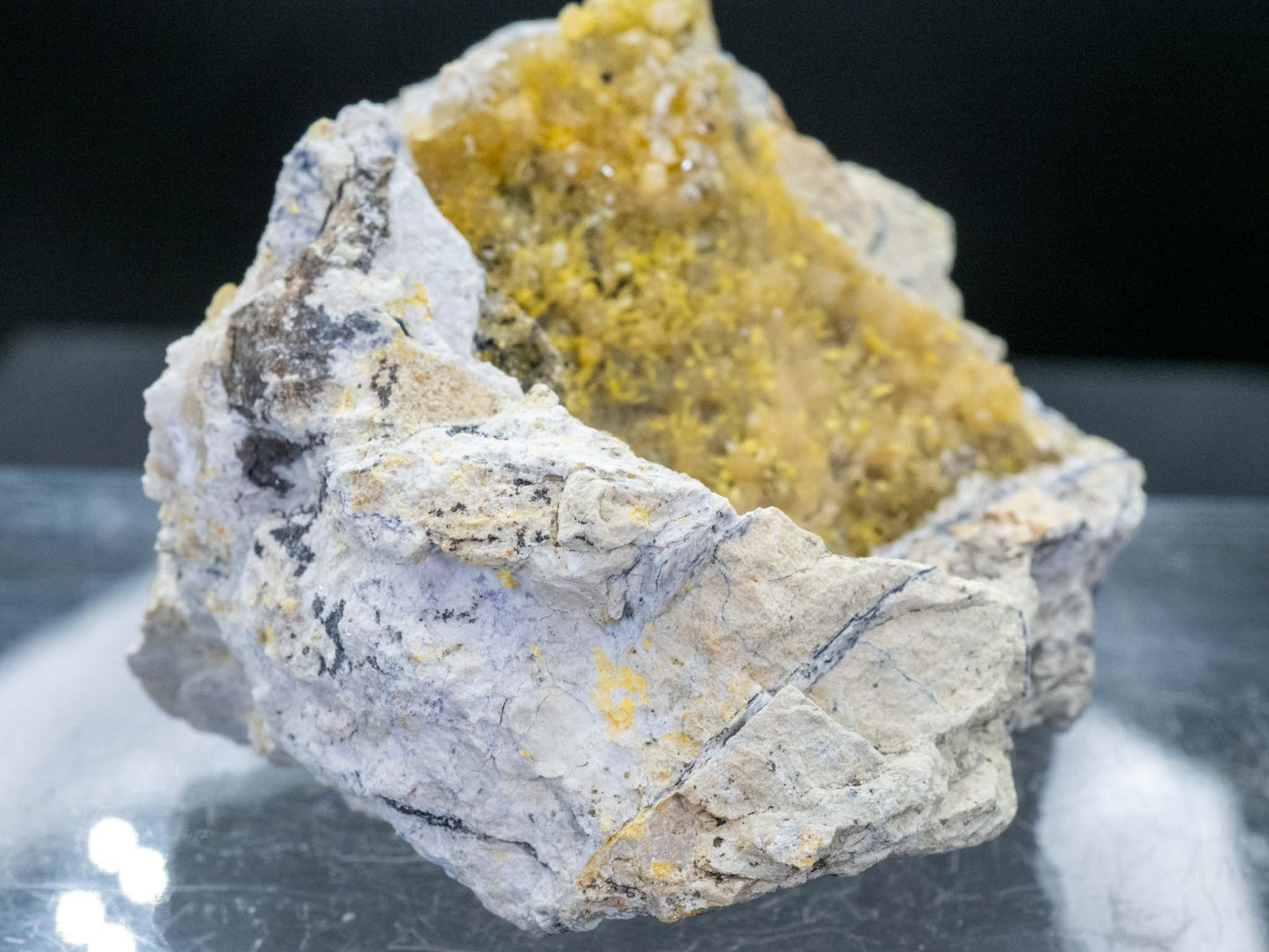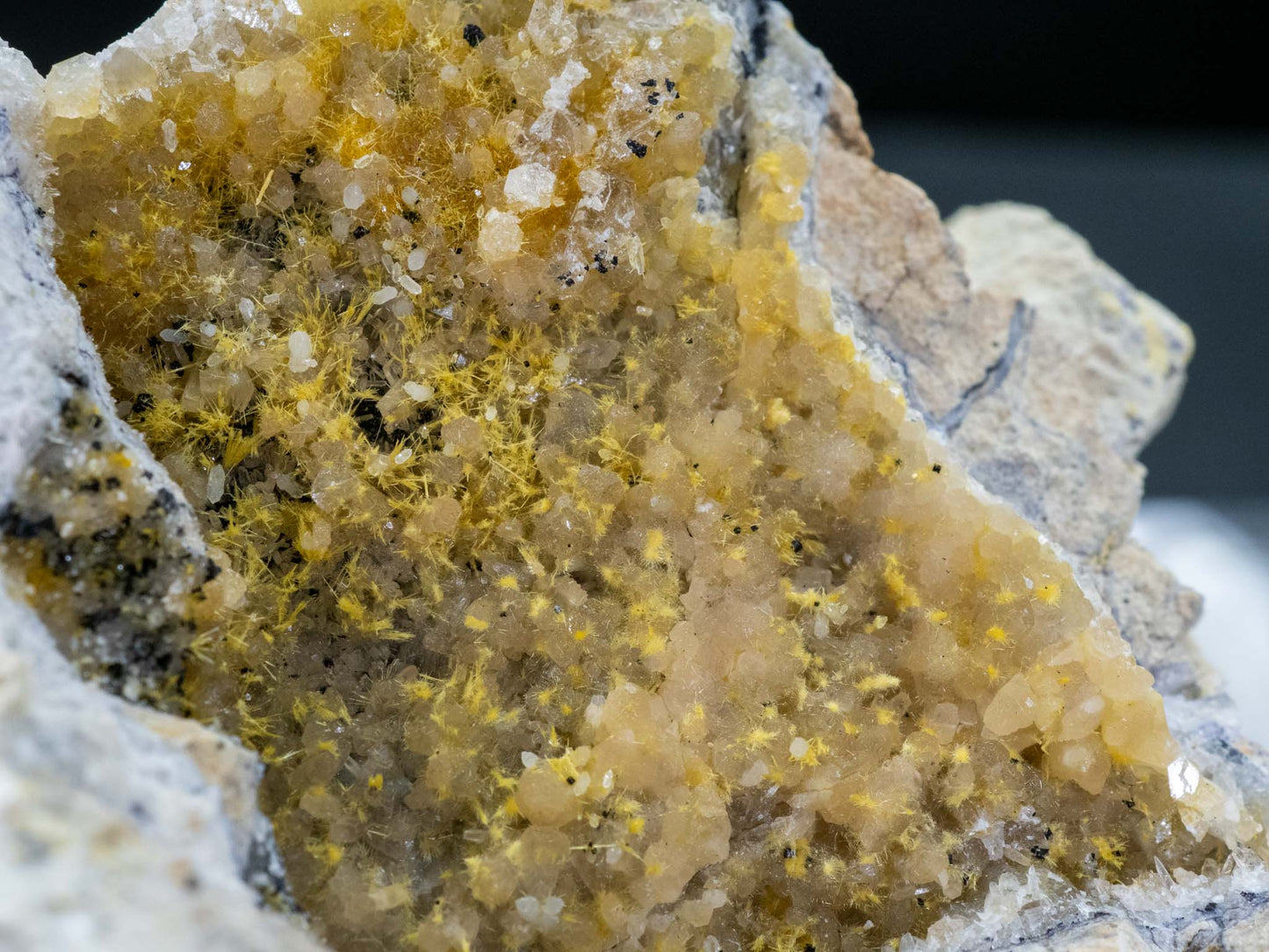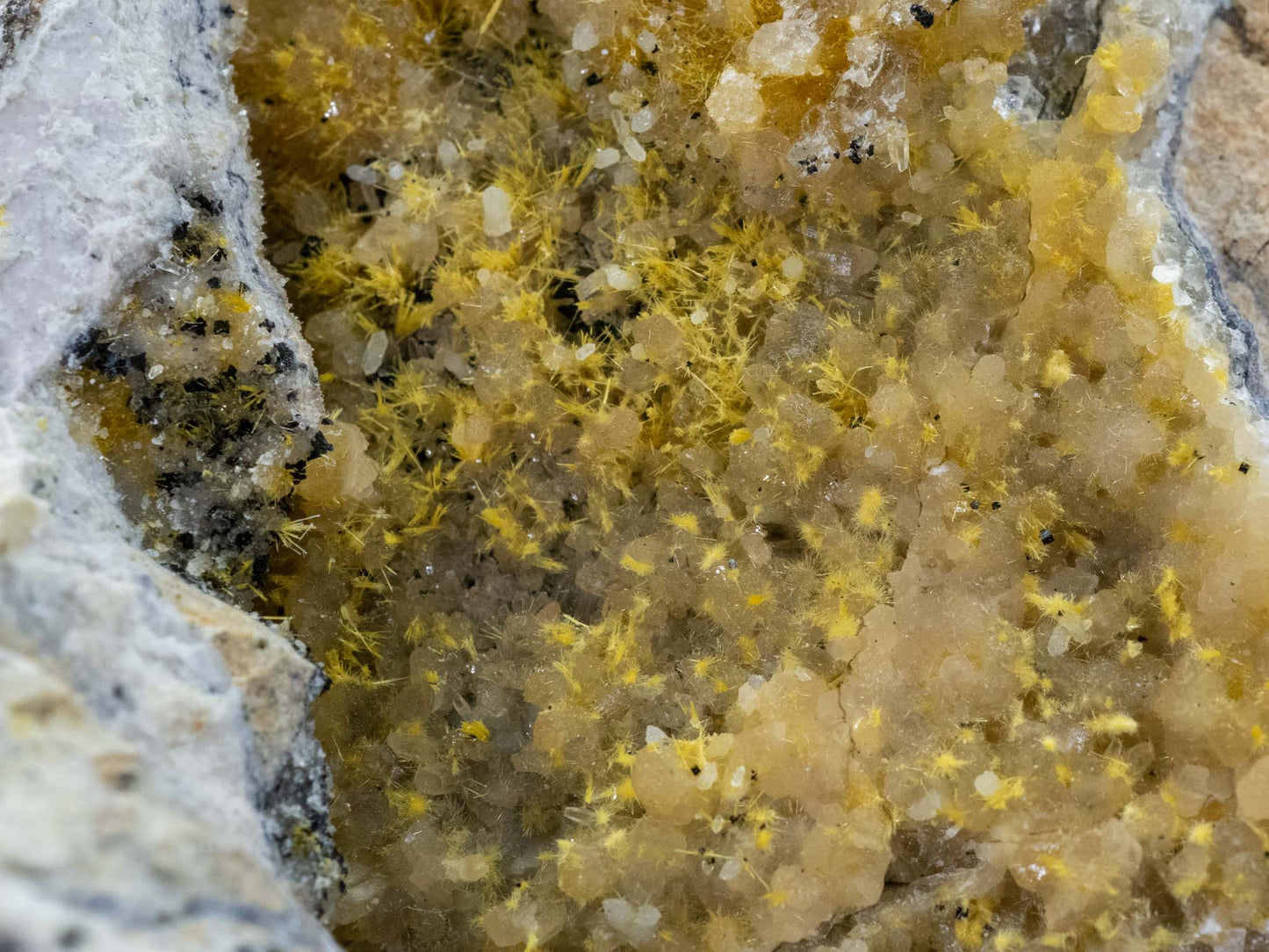Rad Man Minerals
Boltwoodite - New Method Mine, Amboy area, Bristol Mountains, San Bernardino County, California, USA
Boltwoodite - New Method Mine, Amboy area, Bristol Mountains, San Bernardino County, California, USA
Couldn't load pickup availability
 (K,Na)(UO2)(SiO3OH) · 1.5H2O
(K,Na)(UO2)(SiO3OH) · 1.5H2O
Boltwoodite is a secondary uranium mineral known for its distinctive fibrous crystal habit and bright yellow to orange color. It is a hydrated potassium uranium silicate with the chemical formula . Boltwoodite forms as a result of the alteration of primary uranium minerals, such as uraninite, through interactions with silicate-rich groundwater. At the New Method Mine in California, this mineral is notable for its occurrence in bright, radiating acicular aggregates, often found coating fractures and cavities within the host rock.
The New Method Mine, located in San Bernardino County, California, is a well-known uranium deposit where secondary uranium minerals like boltwoodite are found in abundance. The geological environment of the mine, which includes granitic rocks and hydrothermal veins, provides the ideal conditions for the mineral's formation. The combination of uranium-rich host rocks and circulating silicate-laden fluids facilitates the crystallization of boltwoodite along fractures and voids, often in association with other secondary uranium minerals such as autunite, meta-autunite, and carnotite.
Boltwoodite from this locality is highly sought after by collectors due to its vibrant color, delicate fibrous structure, and association with uranium-rich geology. The mineral often appears as silky, needle-like crystals that form striking radiating sprays or thin coatings on the rock surface. These features make specimens from the New Method Mine particularly attractive and valuable in mineral collections. Additionally, boltwoodite’s radiating fibrous habit highlights its unique growth mechanisms within the geochemical environment of the mine.
Approx. specimen size: 75mm x 60mm x 50mm
Approx. specimen activity with a SE International Ranger EXP: 18500 cpm
